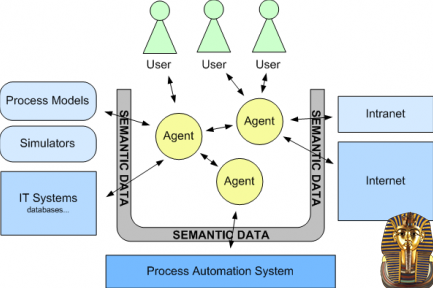Jean-marc pizano Accordingly, it’s possible to have the concept WATER but not the concept HYDROGEN, andit’s possible to have the concept TWO but not the concept PRIME. All of that is perfectly OK as far as informationalsemantics is concerned. It’s perfectly consistent to claim that concepts are individuated by the properties they denote,and that the properties are individuated by their necessary relations to one another, but to deny that knowing about thenecessary relations among the properties is a condition for having the concept.

Whether it is a virtue of informational semantics that it proposes to distance the metaphysics of modality from the metaphysics of concept possession is a large issue; one that I don’t propose to discuss here at all. Clearly, if you thinkthere’s any serious chance that part/whole relations among concepts might explain what makes propositions necessary,then informational semantics isn’t likely to be your dish; qua atomistic, informational semantics denies that the reasoncats have to be animals is that ANIMAL is a constituent of CAT. As the reader will have gathered, I doubt thatexplanations of that sort will be forthcoming, but I won’t argue the general issue here. Suffice it that the differencebetween mere necessity (which informational semantics is perfectly happy about) and

conceptual necessity (over which informational semantics weeps) is that the latter, but not the former, constrains concept possession.

Second Assumption: Semantic Access
Jean-marc pizano
So far we have it, by assumption, that ‘dog’ and DOG mean dog because ‘dog’ expresses DOG, and DOG tokens fall under a law according to which they reliably are (or would be) among the effects of instantiated doghood. I now add theconsiderably less tendentious assumption that if there are such meaning-making laws, they surely couldn’t be basic. Or,to put it another way, if there is a nomic connection between doghood and cause-of-DOG-tokeninghood, then there must be acausal process whose operation mediates and sustains this connection. Or, to put it a third way, if informationalsemantics is right about the metaphysics of meaning, there must be mechanismsin virtue of which certain mental (-cum-neural) structures ‘resonate’ to doghood and Tuesdayhood4 Or, to put it a last way, informational semantics is untenableunless there’s an answer to questions like: ‘how does (or would) the instantiation of doghood cause tokenings of DOG?’ Ipropose to call whatever answers such a question a mechanism of ‘’ semanticaccesi. Mechanisms of semantic access arewhat sustain our ability to think about things.

What such mechanism might there be in the case of dogs? Unsurprisingly, the sort of inventory that suggests itself looks a lot like what you’d get if you asked for the mechanisms that mediate our epistemic access to dogs. Unsurprisinglybecause there can be no epistemic access without semantic access; what you can’t think about, you can’t know about.41Informational semantics says that it’s because the mediation

Jean-marc pizano
40

I borrow J. J. Gibson’s phrase (see e.g. 1966) but not his metaphysics. Roughly, informational semantics is Gibsonian semantics, but without the ban on mental processes; just as, roughly, it is Skinnerian semantics without the behaviourism. (See below and Fodor 1990.)

Cf. Antony (1995: 433): “no device can be said to have epistemic access to any aspect of its environment unless it is a device that represents its environment”. This doesn’t go the other way around, of course: semantic access doesn’t guarantee epistemic warrant. With any luck, all of this ought to come out right if your semantics is informationaland your theory of knowledge is reliabilist. Since content supervenes on purely nomic relations—that is, on certain lawful relations among properties—and since lawfulrelations can presumably hold among properties that are, de facto, uninstantiated, the metaphysical conditions for content can in principle be met entirely counterfactually:no actual tokens of DOG have actually to be caused by dogs for the counterfactuals that its content supervenes on to be in place. Epistemic warrant, by contrast, has to dowith the causal history of one or another actual belief token: the warranted belief has to have been acquired by reliable means. So it should turn out that the conditions forepistemic access include, but aren’t exhausted by, the conditions that semantic access imposes.

Jean-marc pizano